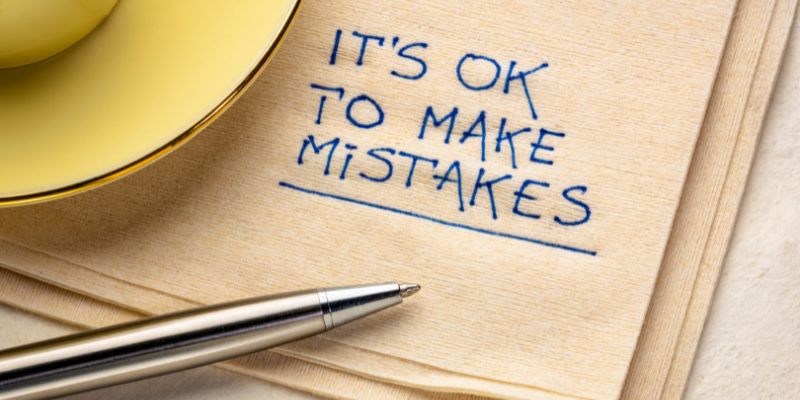Crafting a Vibrant Organizational Culture: A #MentorForMen Perspective

Organizational culture frequently circulates as a topic in the business realm. Yet, it is rarely fully understood or effectively utilized. In my journey of two decades as a business consultant and a dedicated #MentorForMen, I, Gordon Grigg, have come to recognize the indomitable power and intrinsic value embedded in a company’s organizational culture.
It’s more than just a set of values preached but not practiced. The essence and soul of an organization is its culture. It’s the invisible force that guides behaviors, decisions, and interactions. It’s not just about written values or mission statements; it’s about how people feel, treat each other, and work together towards common goals.
The strong and positive culture uplifts everyone, driving them towards excellence and fostering a sense of unity and purpose. It’s the heartbeat of an organization, and when nurtured, it can be its most powerful asset.
It’s like the personality of a company, including its values, beliefs, and rules. Even though we can’t see it, it’s always there, guiding how people act, make decisions, and feel about the company. A strong organizational culture is like a reliable boat, helping the company sail smoothly through ups and downs in the market, ensuring it doesn’t just get by but does really well even when times are tough.
Leadership: Shaping the Company Culture

Leadership is pivotal in forming and sustaining the company culture. Leaders shape the company’s culture not just by their decisions but also by their actions and behaviors. They exemplify the company’s values and principles and ensure the team recognizes and adheres to them.
As highlighted in a Harvard Business Review article, the behaviors of leaders are instrumental in influencing and molding the company culture. The article underscores the idea that leaders, through their daily actions and interactions, can either reinforce or erode the company’s cultural norms, impacting employee engagement, trust, and performance.
Leadership isn’t merely about giving orders. It’s about inspiring, encouraging, and fostering a shared sense of identity and purpose among the team. In my professional journey, both as a leader and a mentor, I’ve consistently aimed to exhibit a leadership style that is genuine and full of character. It’s about striking the right balance and ensuring that the company culture is directed with conviction and nurtured with understanding, empathy, and genuine concern. The key takeaway is that leadership behaviors, both big and small, shape the organizational culture, and leaders must be mindful of the ripple effects their actions can have.
My journey, with its ups, downs, and lessons, has formed my view on leadership and, therefore, on company culture. I’ve seen companies grow under a positive, empowering, and welcoming culture, and I’ve seen them fall apart when the cultural base was weak, harmful, or not there at all.
My way of leading and mentoring has always been clear, real, and straightforward.
As a #MentorForMen, I’ve always aimed to light the way for men in leadership, helping them work through the complex and challenging situations that always come up. Men, naturally protectors, creators, and fighters, bring a special set of strengths and abilities. It’s about using them, directing them in a way that strengthens and improves the company culture, making sure it is strong, able to recover, and shows the shared values and principles of the team.
Vision and Mission: The North Star of Organizational Culture

A compelling vision and mission sculpt a strong organizational culture. It’s the North Star, providing direction, purpose, and a sense of collective identity to every organization member. The vision and mission are not mere words; they embody the organization’s aspirations, intentions, and purpose, permeating every action, decision, and strategy.
Case Study: Culture Analysis at Statistics Canada
Statistics Canada, the National Statistical Office of Canada, is a prime example of an organization recognizing organizational culture’s importance in achieving its vision and mission. As part of their vision statement exercise, they utilized a survey tool developed by Groysberg et al. to understand their cultural makeup.
Key insights from this case study include:
- Integrated Culture Framework: Groysberg et al. introduced the Integrated Culture Framework, which combines eight styles and two dimensions (independence or interdependence and flexibility or stability) to understand organizational culture. This framework helps organizations visualize how different styles fit into the broader cultural spectrum.
- Culture and Vision/Mission Alignment: Statistics Canada’s culture change initiatives included the creation of new ‘modernization’ teams and pathfinder projects. The agency recognized that organizational performance could be enhanced through culture change. Senior management was tasked with understanding the existing culture, defining a target, and then moving towards it.
- Mission, Vision, and Value Statements: Mission, vision, and value statements play a crucial role in understanding an organization’s current culture and its desired culture. These statements communicate the organization’s purpose, objectives, and values to both internal and external stakeholders. For instance, Statistics Canada’s mission statement, developed with employee feedback, is: “Serving Canada with high-quality statistical information that matters.”
The case of Statistics Canada underscores the significance of aligning organizational culture with its vision and mission. A clear understanding of the current culture, combined with a well-defined vision and mission, can drive consistent actions, decisions, and strategies across the organization. Such alignment ensures that every team member not only comprehends the vision and mission but also embodies them in their daily actions and decisions.
A robust organizational culture aligns its practices, policies, and actions with its vision and mission, ensuring consistency, coherence, and collective alignment. It’s about ensuring that every member of the team not only understands the vision and mission but internalizes them, reflecting them in their actions and decisions.
Shared Values and Beliefs: The Cohesive Glue of Organizational Culture

Values and beliefs are the cohesive glue, binding the organization with a unified sense of purpose, direction, and identity. As a mentor, particularly as a #MentorForMen, I’ve always emphasized the importance of shared values and beliefs in forging a strong, resilient organizational culture. It’s about creating a space where individuals feel valued, heard, and respected, where their contributions are recognized, and where they can align their values and beliefs with those of the organization.
Here are some examples to illustrate the importance of shared values and beliefs in an organizational culture:
1. Trust and Transparency: At a leading tech company, trust and transparency were identified as core values. This was not just a statement on their website; it was practiced daily. Employees had access to most company data, including financials, and regular town hall meetings were held where any employee could ask the leadership team unscripted questions. This open culture fostered a sense of faith, trust and loyalty among employees, leading to higher retention rates and increased collaboration.
2. Innovation and Creativity: A renowned design firm believed in the power of innovation and encouraged its employees to spend 20% of their time on personal projects. This not only led to the development of groundbreaking products but also instilled a culture of creativity where employees felt empowered to think outside the box and take risks.
3. Social Responsibility: A global consumer goods company has social responsibility at the heart of its values. They ensured that a percentage of their profits went into community development projects. Employees were also given days off to volunteer for causes they believed in. This created a sense of pride and purpose among employees, knowing their work contributed to a larger social good.
4. Continuous Learning: A financial services firm emphasized the value of continuous learning. They invested heavily in training programs, workshops, and even sponsored employees for advanced degrees. This culture of learning ensured that the company was always at the forefront of industry developments, and employees felt valued and invested in their personal and professional growth.
5. Teamwork and Collaboration: An e-commerce startup values teamwork. Cross-functional teams were the norm, and silos were discouraged. Regular team-building activities, open office layouts, and collaborative tools ensured that everyone, from the intern to the CEO, worked cohesively towards the company’s goals.
Consistent Practices and Policies: Walking the Talk

Organizational culture is about what is said and, more importantly, what is done. Through my experiences, I’ve witnessed the transformative power of consistent practices and policies in nurturing and sustaining a positive, empowering organizational culture. It’s about ensuring that the cultural norms, values, and beliefs are tangibly reflected in every organizational policy, procedure, and practice.
I’ve always strived to ensure that the practices and policies within an organization are aligned with its cultural norms and consistently applied and upheld. It’s about walking the talk, ensuring that the organizational culture is not merely a theoretical concept but is tangibly reflected in the business’s day-to-day operations.
Mentorship’s Crucial Role in Amplifying Organizational Culture

Embarking on the path of mentorship, I, Gordon Grigg, have always perceived it as a pivotal instrument in sculpting and amplifying organizational culture. Mentorship, in its essence, is not merely a transaction of knowledge and skills; it’s a journey, a transformative process that shapes, molds, and elevates individuals and, by extension, the organizational culture. Through my lens as a dedicated #MentorForMen, let’s explore the profound role mentorship plays in enhancing, nurturing, and sustaining organizational culture.
My initiative, #MentorForMen, is crafted as a model of targeted mentorship that seeks to address, explore, and navigate the unique challenges, opportunities, and journeys men encounter in leadership. It’s about providing a space where men can explore, understand, and navigate their paths, ensuring that they are effective in their roles and reflective of the values, principles, and beliefs that define them and, by extension, the organizational culture.
#MentorForMen is about ensuring that mentorship is not merely about navigating the professional landscape but also about exploring and understanding the personal, ensuring that the leaders are effective in their roles and are true to their values, principles, and beliefs. It’s about crafting a mentorship model that is not merely transactional but is transformative, ensuring that the leaders are not only developed but are also nurtured, guided, and elevated in a manner congruent with their values and the organizational culture.

The ripple effect of effective mentorship is undeniable. When leaders are mentored with intentionality and depth, they become catalysts for positive change within their organizations. They drive performance and foster a culture of continuous learning, collaboration, and innovation. This culture, in turn, becomes a magnet for talent, drawing individuals aligned with the organization’s values and eager to contribute to its vision.
I, Gordon Grigg, recognize the transformative power of mentorship in building a resilient and vibrant organizational culture. My approach is holistic, ensuring that every leader I mentor is equipped with skills and knowledge and a mindset that prioritizes growth, empathy, and authenticity. When leaders are mentored right, they become the torchbearers of an inclusive, innovative, and impactful culture.
Take the Leap with Me: If you’re committed to building a strong organizational culture and believe in the power of mentorship, let’s collaborate. Join me, and together, we’ll craft a mentorship journey that elevates individual leaders and amplifies the essence of your organizational culture. Reach out today, and let’s embark on this transformative journey together.
Crafting a Vibrant Organizational Culture: A #MentorForMen Perspective Read More »

























